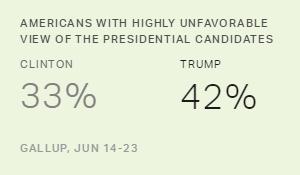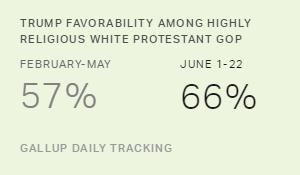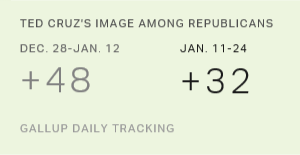With the long, competitive and largely unconventional presidential primary season behind them, the two presumptive nominees of the Democratic and Republican parties are set to make it official at their national party conventions this July.
Nevertheless, the "Never Trump" movement is still maneuvering to deny Donald Trump the nomination at the Republican National Convention this month. While unlikely, the effort is symbolic of the intra-party resistance Trump has faced all year. Hillary Clinton had her own problems with a much-longer-than-anticipated contest with her primary rival, Bernie Sanders, who challenged her personal qualifications to be the Democratic nominee. Sanders has avoided endorsing her, even though the Democratic National Convention looms near.
It is fair to say that neither presumptive nominee emerged from the primary elections unscathed, and there remains much work for both to do to unify their parties before the election. Without unity, it is quite possible there could be noticeable crossover voting by Democrats for Trump and Republicans for Clinton -- or a higher percentage than usual of voters who opt to stay home. John F. Kennedy's quote comes to mind: "Sometimes party loyalty asks too much."
Â鶹´«Ã½AV's May Election Benchmark poll helps clarify the scope of the problem. Republicans and independents who lean Republican were asked if they were pleased or not with the primary election process that made Trump the presumptive nominee. Fully 48% responded they wished "someone else" was the Republican nominee. Likewise, in the same study, 43% of Democrats and independents who lean Democratic indicated they would prefer for someone else to be the Democratic nominee -- namely Sanders. While nobody believes four in 10 voters are going to defect from their party's standard bearer, these percentages appear to be unusually large for presidential candidates who are just weeks away from their party's national conventions, and thus this deserves further attention.
Another red flag in the May survey for each of the two presumptive nominees comes from responses to the question concerning the kind of president Americans expect their nominee to be: 39% of Democrats in this study responded that Clinton would be an average, poor or terrible president, or, in normal parlance, "nothing special or worse." Republicans' outlook for Trump revealed a similar percentage (41%) expecting him to be only average, poor or even terrible. In other words, a sizable minority in each party hold no great expectations for their nominee.
One way to measure potential party defection or crossover voting in this unconventional election climate is to investigate what may underpin self-identified Democrats' and Republicans' problems with their respective candidates. The "trust quotient" is generally considered one of the most important aspects of voter decision-making. Yet, the data show this factor is severely lacking in both parties. Forty-three percent of Democrats and independents who lean Democratic have doubts that Clinton is honest and trustworthy, and 36% of Republicans and Republican leaners say trust does not apply to Trump.
Those who both anticipate their party's nominee would be nothing special or worse once in office as president (rating them average, poor or terrible) and who say their candidate is not honest and trustworthy might be viewed as partisans who are most at risk of defection. The description fits roughly one-quarter of Republicans (26%) and about the same percentage of Democrats (28%). While campaigns usually convert many reluctant partisans to positive supporters of their party's nominee by Election Day, this measure provides a baseline indicating how much work must be done if the candidates are going to unify their respective parties.
Two broad demographic subgroups within these two weak groups of possible defectors appear to be disproportionately dominant. For Clinton, it is males between the ages of 18 and 49. This group constitutes about one-quarter of all Democrats, but 40% of potential Democratic defectors. For Trump, the problem group is females between the ages of 18 and 49. They constitute 21% of all Republicans leaners, but 36% of potential Republican defectors.
Two candidate qualities measured in the May survey appear to be particularly problematic for Clinton among these "weak" Democrats. These include their low levels of agreement that she "can bring about the changes this country needs" (71% disagree), and also that she "has strong moral character" (75% disagree). These sparked the highest disagreement among any of the character themes tested with her potential defectors, and their level of disagreement is substantially higher, as would be expected, than among the general population of Democrats.
Among Republicans, Trump has three themes that appear most problematic for his potential defectors: "lacks the experience it takes to be president" at 87%, "not likeable" at 82%, and "would display good judgment in a crisis" at 74%. These three themes are the most negative of any tested among the weak support group.
Bottom Line
This is an era of sharp partisanship and significant public policy polarization between liberals and conservatives on many issues. It is reasonable to expect that the introduction of large-scale pressure for voters to shift allegiances will present turnout problems and uncertainties for both presumptive nominees. Many studies show that certain segments of society who are defined by socioeconomic status and other characteristics have strong tendencies to favor one political party over another. However, there is never complete consistency in voting patterns, and in any given election a substantial minority may deviate from a general election pattern. Famous examples include Reagan Democrats in the 1980s and "Soccer Moms" in the 1990s.
The 2016 presidential election's potential to deviate from party allegiances could be quite high. These cross-pressures could easily be rooted in questions about the honesty of the candidates, but also in perceptions of one or the other candidate's lack of leadership experience, inability to bring about changes needed, likeability and ability to display good judgment in a crisis in particular.
Cross-pressures could impact this election in several ways. It could delay voter decisions, keep voters home, and conflict voter confidence and promote a "lesser of two evils" vote. It is likely that the 2016 presidential election will go down in history as one of the most contentious and unconventional ever. Expect to see party allegiances tested at unprecedented levels.



